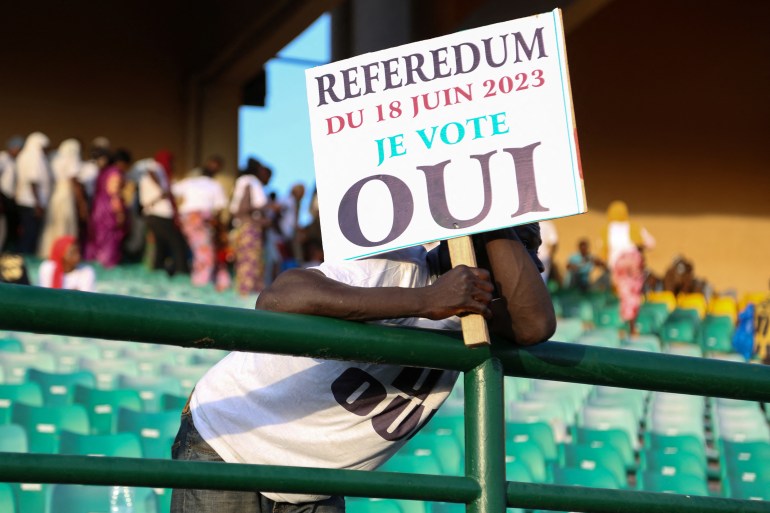Under the changes, the president will have the right to hire and fire the prime minister and cabinet members.
Malians approved changes to the constitution in a recent referendum that the military rulers and regional powers have said will pave the way to elections and a return to civilian rule.
The West African country’s electoral authority said on Friday that 97 percent of votes were cast in favour of the changes.
The turnout for Sunday’s referendum was at 39.4 percent in the country of 8.4 million registered voters, said Moustapha Cisse, head of the electoral commission, announcing the results in the capital, Bamako.
Some of the proposed clauses in the new constitution drafted by the transitional council are contentious, with proponents saying they would strengthen fragile political institutions and opponents saying they would give too much power to the president.

Under the constitutional changes, the president will “determine the policies of the nation,” a role allotted to the government under the country’s current constitution, which dates to 1992.
The head of state will have the right to hire and fire the prime minister and cabinet members, and the government will be answerable to him and not to parliament, as is the case currently.
Other clauses provide amnesty to those behind prior coups, reform oversight of public finances and force parliamentarians and senators to declare their wealth in a bid to clamp down on corruption.
Poll observers reported a number of security incidents during the vote.
Voters in several villages were forced to flee after gunmen burst into polling centres, bringing operations to a halt and destroying materials, observers said.
Little voting took place in large areas of northern Mali controlled by armed groups linked to al-Qaeda and ISIL (ISIS).
The United Nations and regional bodies such as the Economic Community of West African States (ECOWAS) see the referendum itself as an important test of the military government’s willingness to stick to the transition and hold a nationwide democratic process.
Mali has been under military rule since August 2020 when army officers, angered over failures to tackle armed groups, forced out the country’s elected president, Ibrahim Boubacar Keita.
Sumber: www.aljazeera.com
 Skip to content
Skip to content

